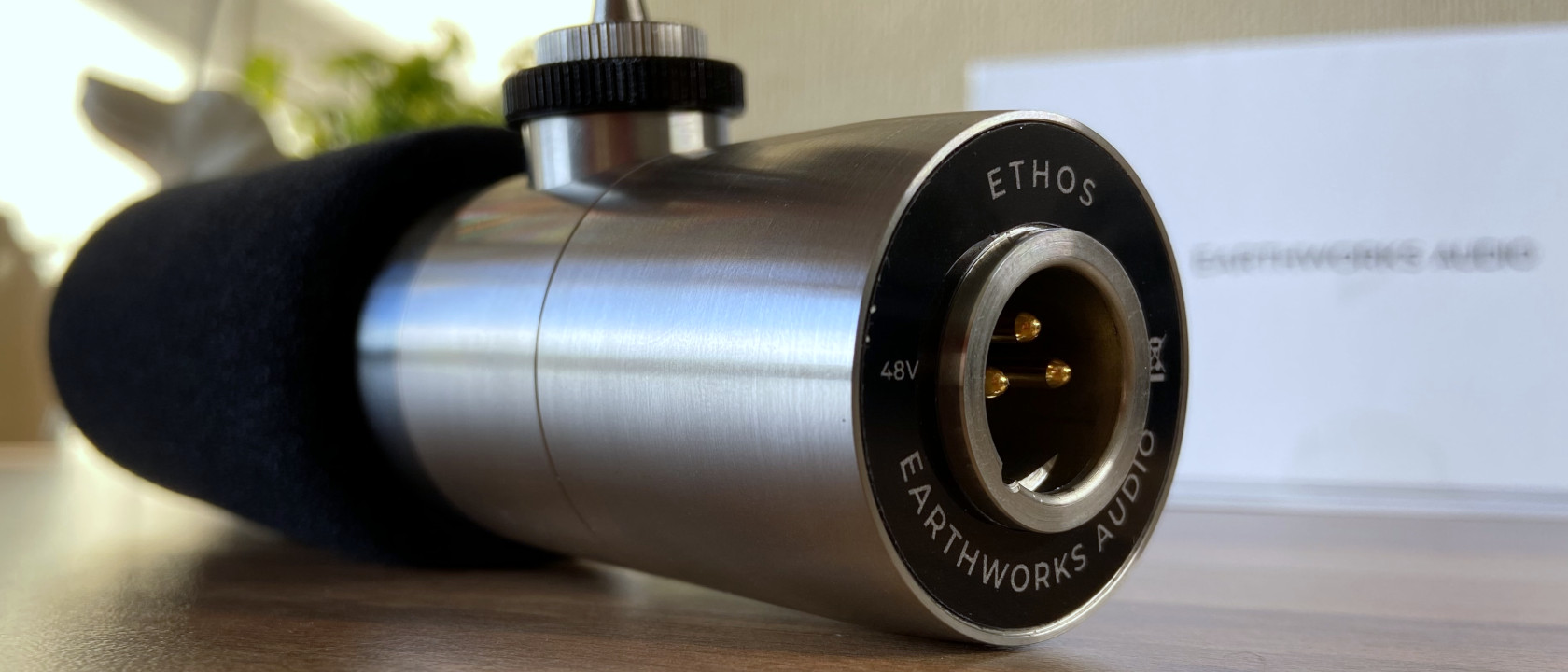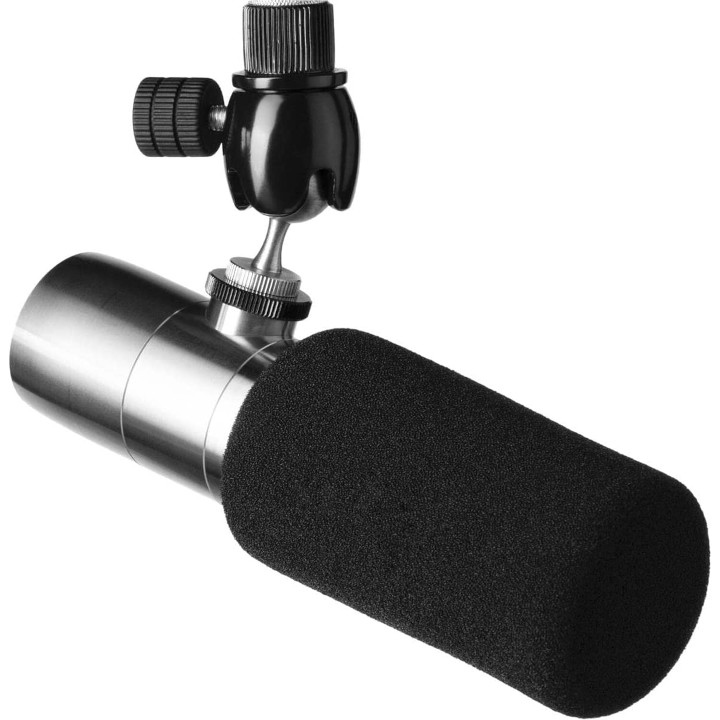Windows Central Verdict
This sturdy stainless-steel condenser mic sounds absolutely fantastic out of the box with a flat EQ and even better with a small amount of processing. The sensitive supercardioid pattern picks up sounds from farther away than some competitors, so you don't need it so close to your face. It needs Phantom power and some extra accessories but should serve you well for years.
Pros
- +
Superb foam windscreen reduces pops.
- +
Fantastic audio with flat EQ.
- +
Triad-Orbit mount included.
Cons
- -
No XLR cable included.
- -
Needs Phantom power.
Why you can trust Windows Central
Microphones are critical for almost every modern workspace. The simplest mics work fine for video calls but don't offer much versatility. Content creators tend to spring for a mic that covers more avenues like video narration and live streaming, usually starting with a USB all-in-one solution.
The next step up is often XLR, an analog alternative that usually offers less latency and higher fidelity recordings. It's not the easiest hardware to approach for beginners since you can't plug XLR cables directly into your average desktop Windows PC.
Earthworks Audio presents Ethos, a condenser microphone designed for broadcasters and professional streamers. Its price point could cause concern for newcomers, but I spent the weekend trying it out in my simple home setup to see how it could appeal to anyone looking to invest in a high-quality mic.
Earthworks Audio Ethos: Price, availability, and specs
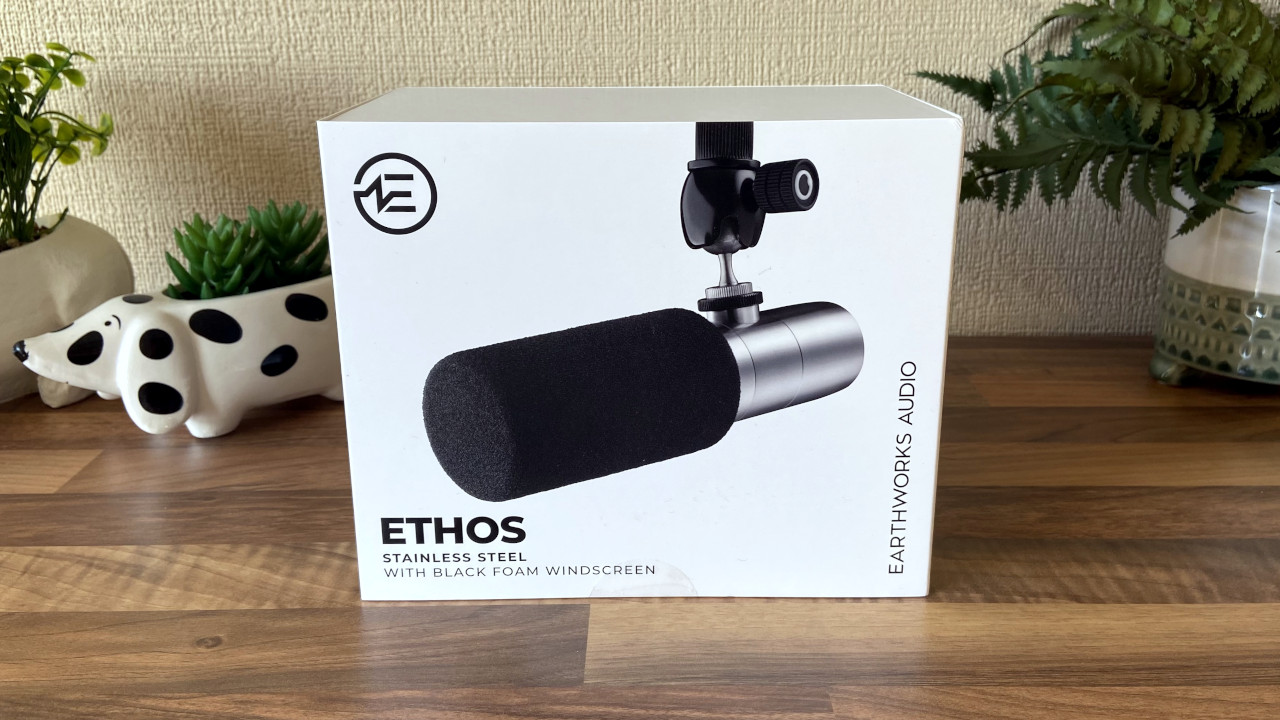
Earthworks Audio sells the Ethos XLR condenser microphone through third-party retailers, including Amazon. Available for $399 MSRP, the silver model is packaged with a custom foam windscreen and a 3/8" screw thread adapter. A matte black variant is also available with the same accessories for $749 MSRP.
| Category | Specification |
|---|---|
| Frequency response | 20Hz - 30,000Hz |
| Polar pattern | Supercardioid |
| Diaphragm size | 14mm |
| Sensitivity | 20mV/Pa (-34dBV/Pa) |
| Power | 24-48v Phantom, 10mA |
| Signal to noise ratio | 78dB (A-weighted) |
| Peak acoustic output | 145dB SPL |
| Output | XLR (pin 2+) |
| Output impedance | 65Ω |
| Min output load | 600Ω |
| Self noise | 16dB SPL (A weighted) |
| Dimensions″ | 176 x 58 mm |
| Weight | 454g |
Earthworks Audio Ethos: What's good
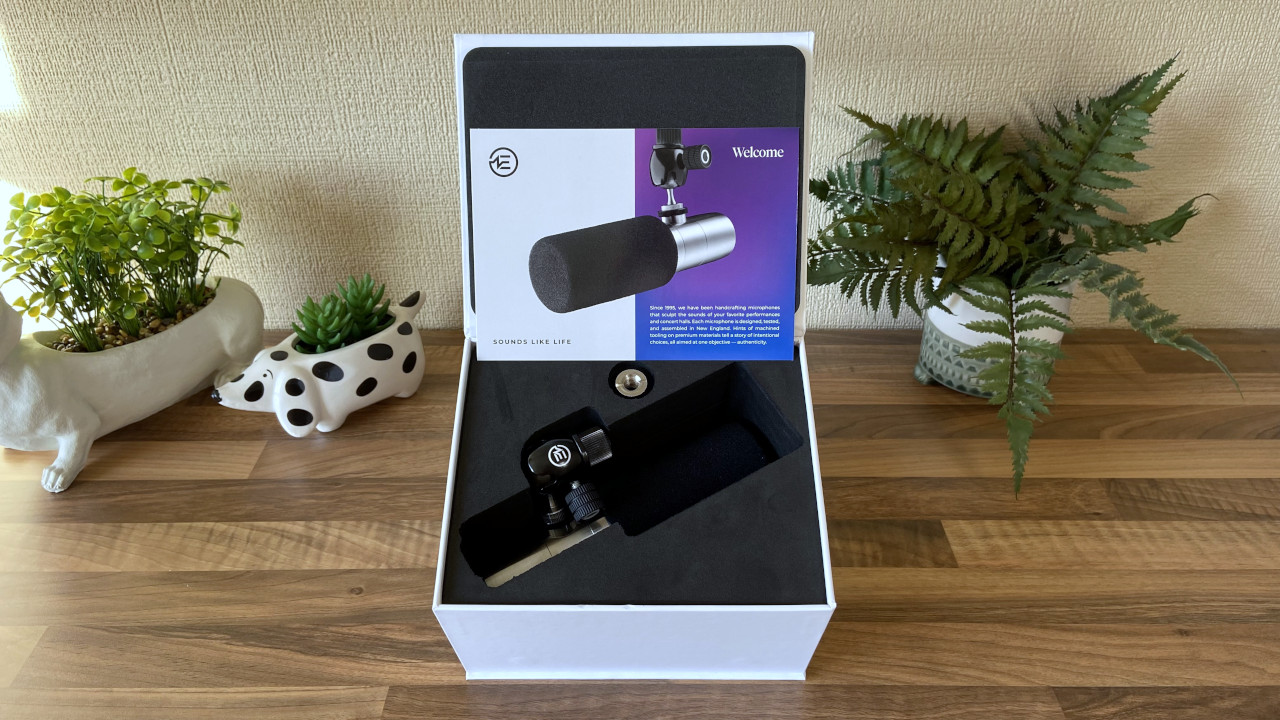
My first impressions of the Ethos microphone lined up with the mission statement advertised by Earthworks Audio; to be sophisticated and uncomplicated. The mic is relatively straightforward in design, with a solid construction that doesn't exhibit any rattling or weak joints. Manufactured from a single piece of stainless steel, this dense mic measures a hefty yet well-balanced 454g.
You can remove the foam shield for a peek at the inner workings, screwing it apart for any required maintenance, but there's no sign of loose parts causing issues here. The Ethos is adjustable without needing tools and remained robust no matter how much I inspected its components, matching its apparent ambition to be a speedy and reliable plug-and-play option.
During my initial analysis of the so far impressive Ethos, the M2-R rotating ball-joint mount stood out as my favorite addition. Operating with a single thumb screw, the Triad-Orbit attachment spins around to help find the perfect position, with four cutout sections for an even firmer lock. If you're planning to attach this microphone to a somewhat simpler arm mount, this extra degree of freedom is magnificent.
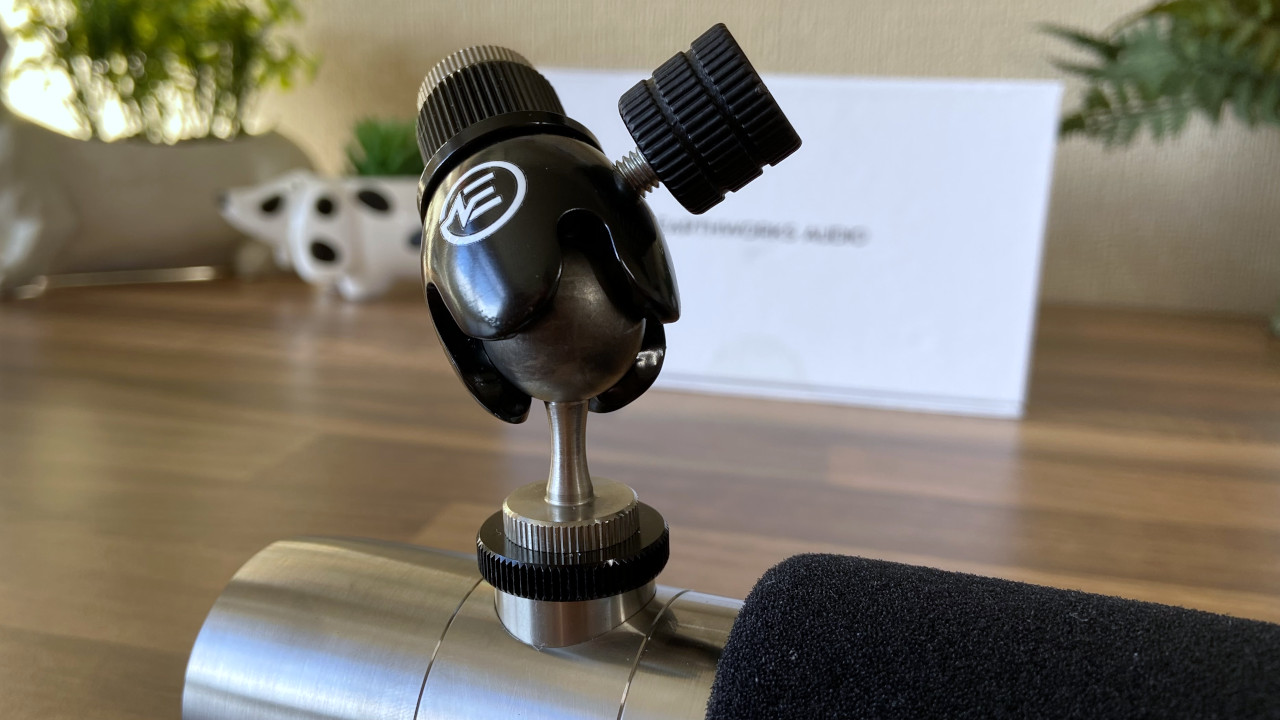
Earthworks Audio includes a 3/8" screw thread attachment with the Ethos, saving me from digging around in boxes of miscellaneous accessories. Attaching the mic onto a mounting arm barely took a minute, rotating it into the perfect position for recording. If you have a suitable XLR cable with enough slack, there's plenty of maneuverability straight out of the box.
The XLR pins are fitted flush with a notch for the usual locking mechanism on standard cables.
Besides the rotating mount, the only functional feature on the Ethos is the pin 2+ XLR port located at the rear. The pins are in no danger of damage, fitted flush into its body with a notch for the usual locking mechanism found on standard cables.
Earthworks Audio doesn't manufacture cables, and you'll need to provide 24-48v 10mA of Phantom power to power the Ethos. There's nothing unusual about this connection or its requirements, and the results coming up soon will verify their necessity. My setup is equal parts excessive and primitive since I'll be connecting to the Rodecaster Pro II production station, albeit in a home office that was never designed to be a recording studio.
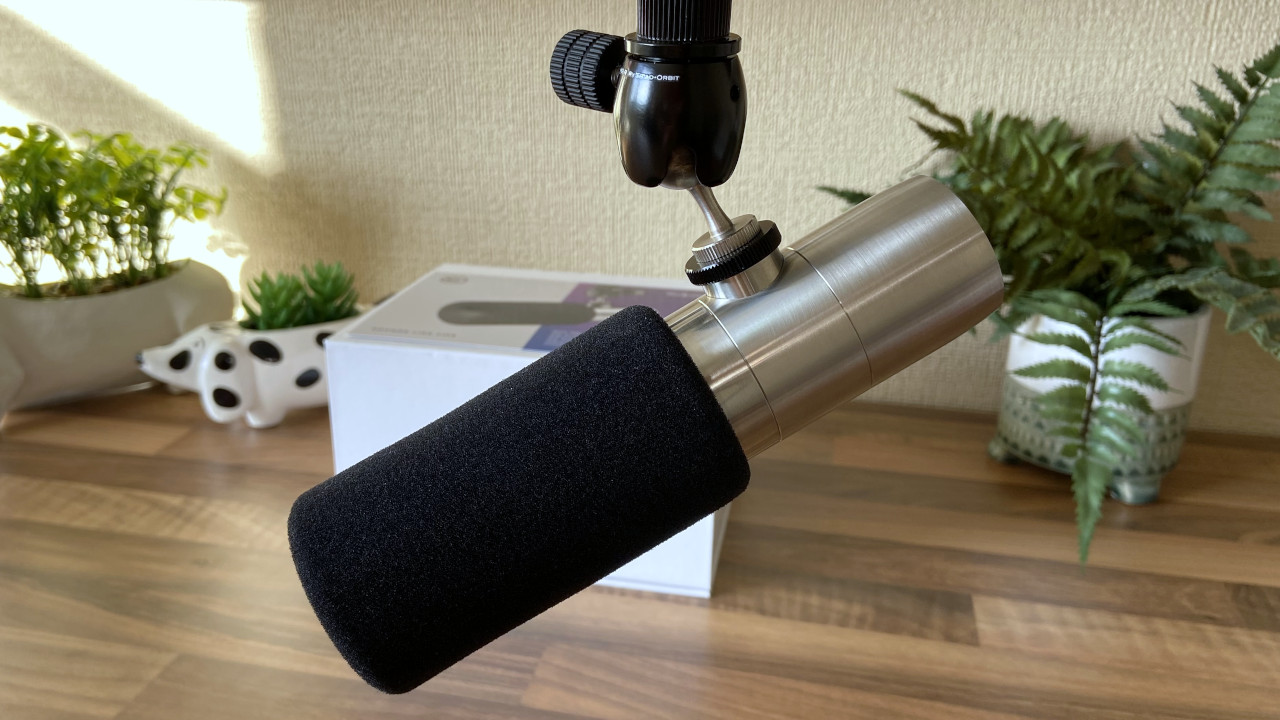
Starting with a completely flat equalizer, the Ethos sounded fantastic when recording vocals. The included foam windscreen performed admirably as a pop filter, even when positioning myself only a few inches away. Considering I've needed to pick up additional shields to clip onto previous microphones, this performance out of the box is incredible. If you're planning to record narration exclusively, you could happily connect this mic to a basic XLR mixer without boosting or live effects and edit recordings later.
A crisp and clean signal lends the Ethos well to post-processing effects. I barely needed to raise the gain since this condenser mic is already more sensitive than other models I'm used to, and there's very little work required to shape what some might consider a professional sound.
The Ethos doesn't need a preamp and provides divine audio quality with practically zero effort.
Any experienced studio technician could strive for perfection with equalizer levels, especially with the fantastic flat performance on the Ethos. Still, this mic doesn't need a preamp and provides divine audio quality with practically zero effort.
Sitting further away doesn't drop the quality, though I recommend choosing a better recording location than my bare-walled home office. The simplicity and setup speed make this mic a little more versatile than a podcast-focused XLR model.
The boosted sensitivity provided by the condenser setup over dynamic proves useful for accurately recording instruments, but the crisp high-end is a real treat for vocals. Anyone connecting two Ethos mics into a simple 2-port mixer would be well on their way to an interview setup for a professional podcast.
Earthworks Audio Ethos: What's not so good
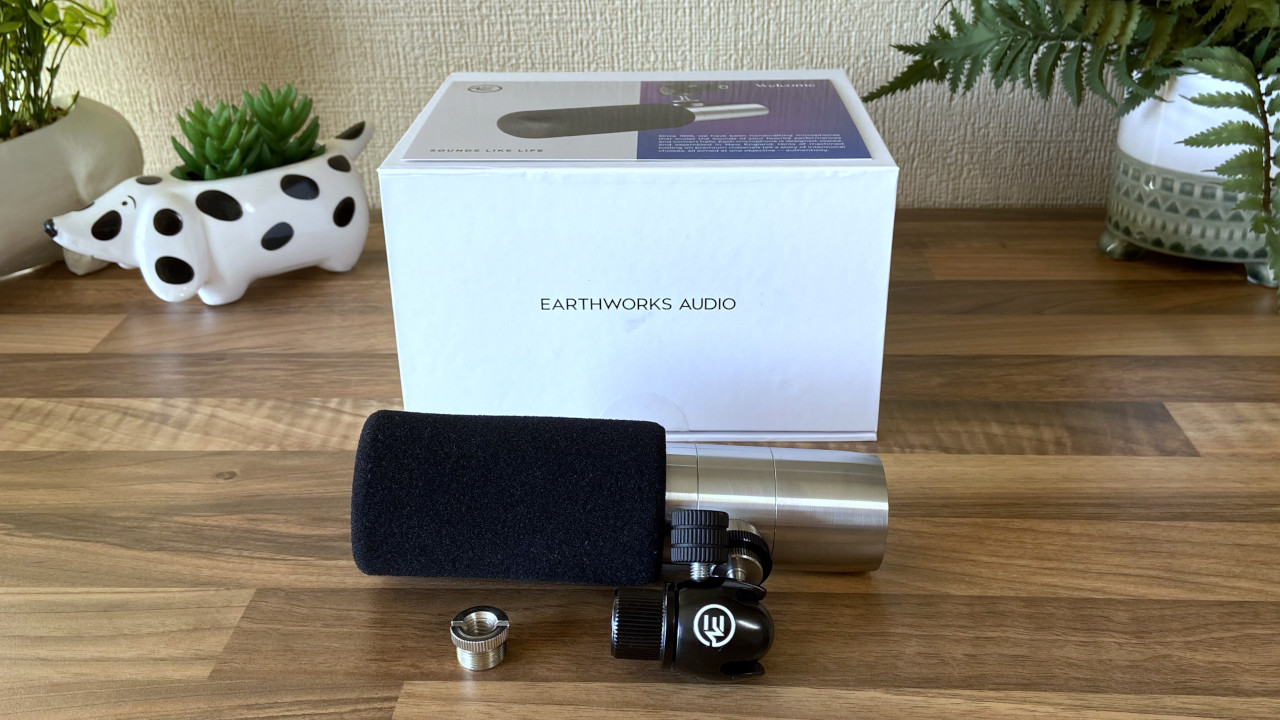
There is very little negative to say about the Ethos, at least from a functional standpoint. The microphone is exceptionally well made and sounds fantastic with or without post-processing, matching its marketing toward professional broadcasters and at-home streamers. Still, some points should be considered before picking up this high-end mic.
Initially launching at $699 MSRP, the stainless-steel Ethos has dropped significantly to a far more affordable $399 price point. Unfortunately, the same discount has not been applied to the matte black variant, which remains around an eye-watering $749. If you're not a fan of the 1970s glossy aesthetic found on the standard model, the asking price for a darker option is staggering.
Most of the Earthworks Audio microphone range feature a steel finish, so it makes sense for the most prominent model to be cheaper. Regardless, anyone looking to match a darker studio setup with an appropriate matte black mic will be significantly out of pocket. Hopefully, the alternate color sees a price drop or is removed entirely. At this price increase, it's practically pointless to choose anything but the standard model.
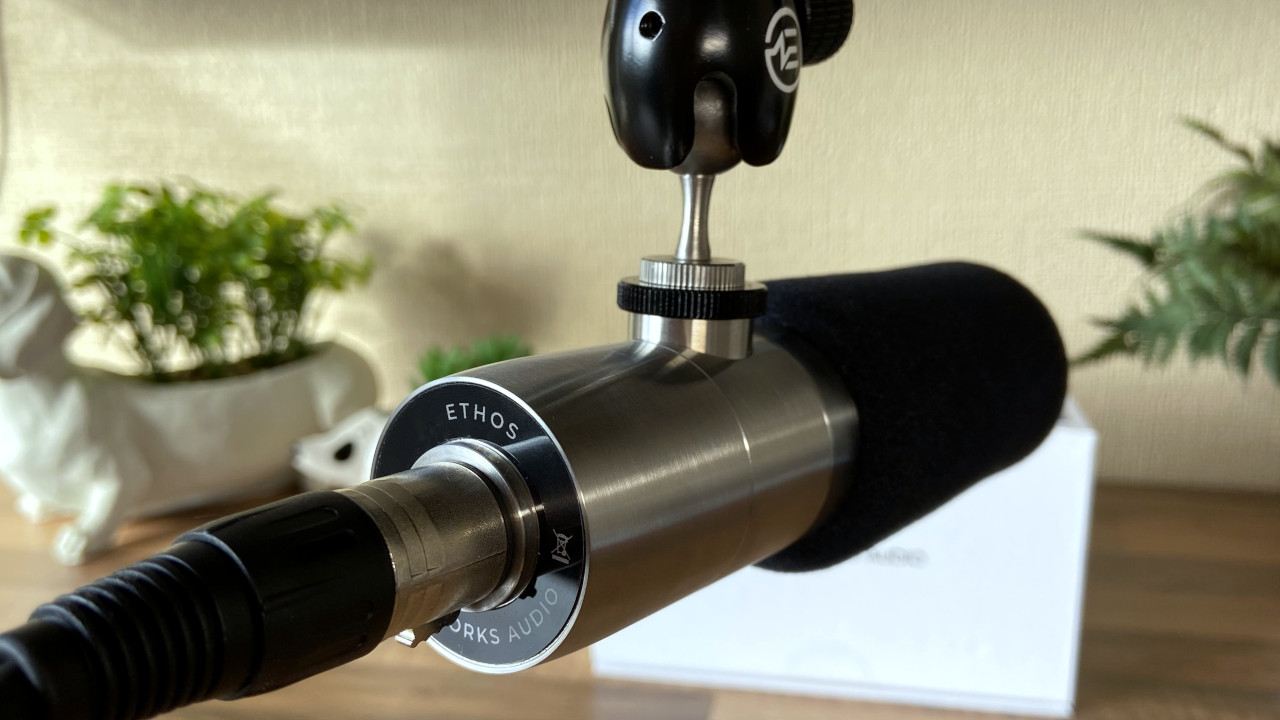
From a practical standpoint, the Ethos loses a tiny amount of favor by not including an XLR cable. As mentioned earlier, Earthworks Audio doesn't manufacture any, but the partnership with Triad-Orbit for its mount implies there could be options for official recommendations.
If this microphone were pitched solely toward professional broadcasters, this wouldn't feel as much of an issue since many studios usually have an abundance of spare XLR cords. Right now, the marketing focus is almost evenly split with streamers, an audience that often prefers an out-of-the-box functionality.
Newcomers to the XLR standard will need a secondary journey to find an appropriately high-quality cable. It's not too difficult to be swayed by shoddy cords that talk big but could lump you with shoddy components that may diminish the Ethos' performance. Perhaps a 'we recommend' section on the included quickstart guide and website could help convince the streaming audience to pick up this otherwise perfect microphone.
Earthworks Audio Ethos: The competition
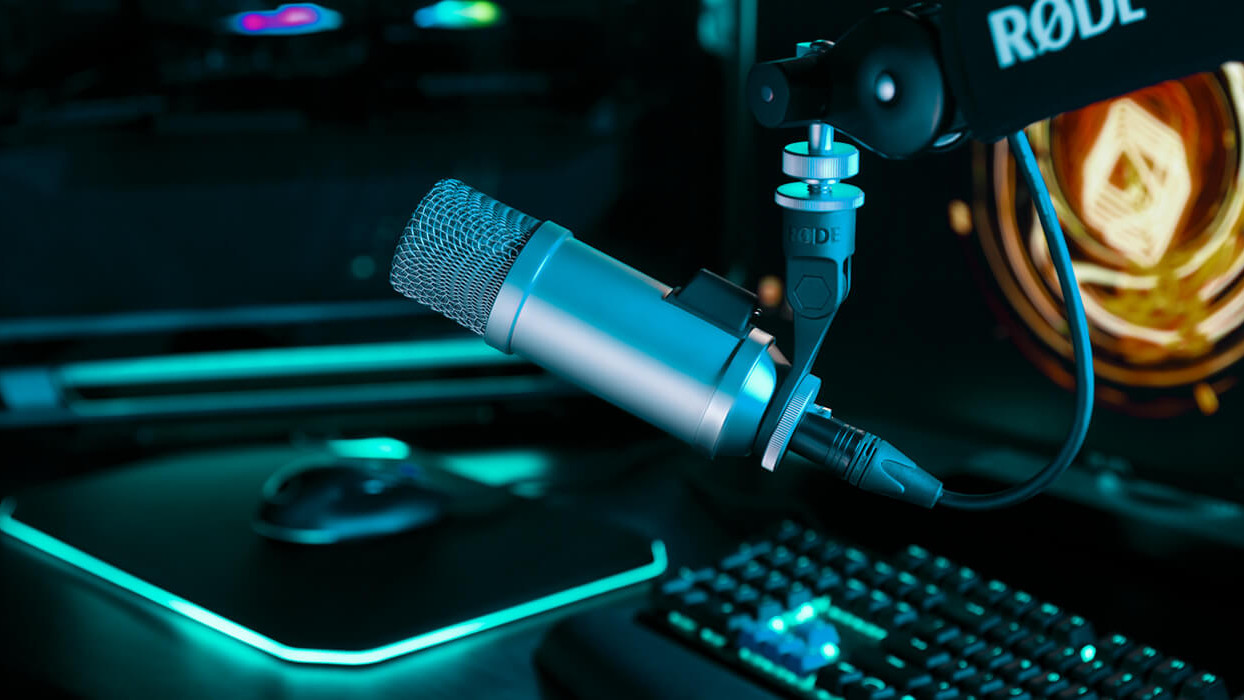
For streamers looking to graduate from USB microphones to something more professional, XLR condenser variants are top-shelf for broadcast-quality audio. You have a little more versatility than a dynamic model, and the higher sensitivity found on the Ethos means you don't need it placed right in front of your face at all times.
To match the same flexible use case, the Rode Broadcaster is a $419 condenser microphone that jumps ahead in price but doesn't match up in all of its specifications. Sensitivity is the same at -34.0dB, but the frequency range caps out at 20,000Hz and uses a standard cardioid pattern instead of supercardioid.
The Shure SM7B is a $500 condenser option for XLR that uses a dynamic diaphragm, focusing on recording close-up voices. Its 50 to 20,000Hz frequency range isn't up to par with the Ethos, but you get another fantastic foam widescreen for similar plosive prevention. Where the SM7B shines is its independence from phantom power, but an extra $100 might not be enough to convince on saving some energy.
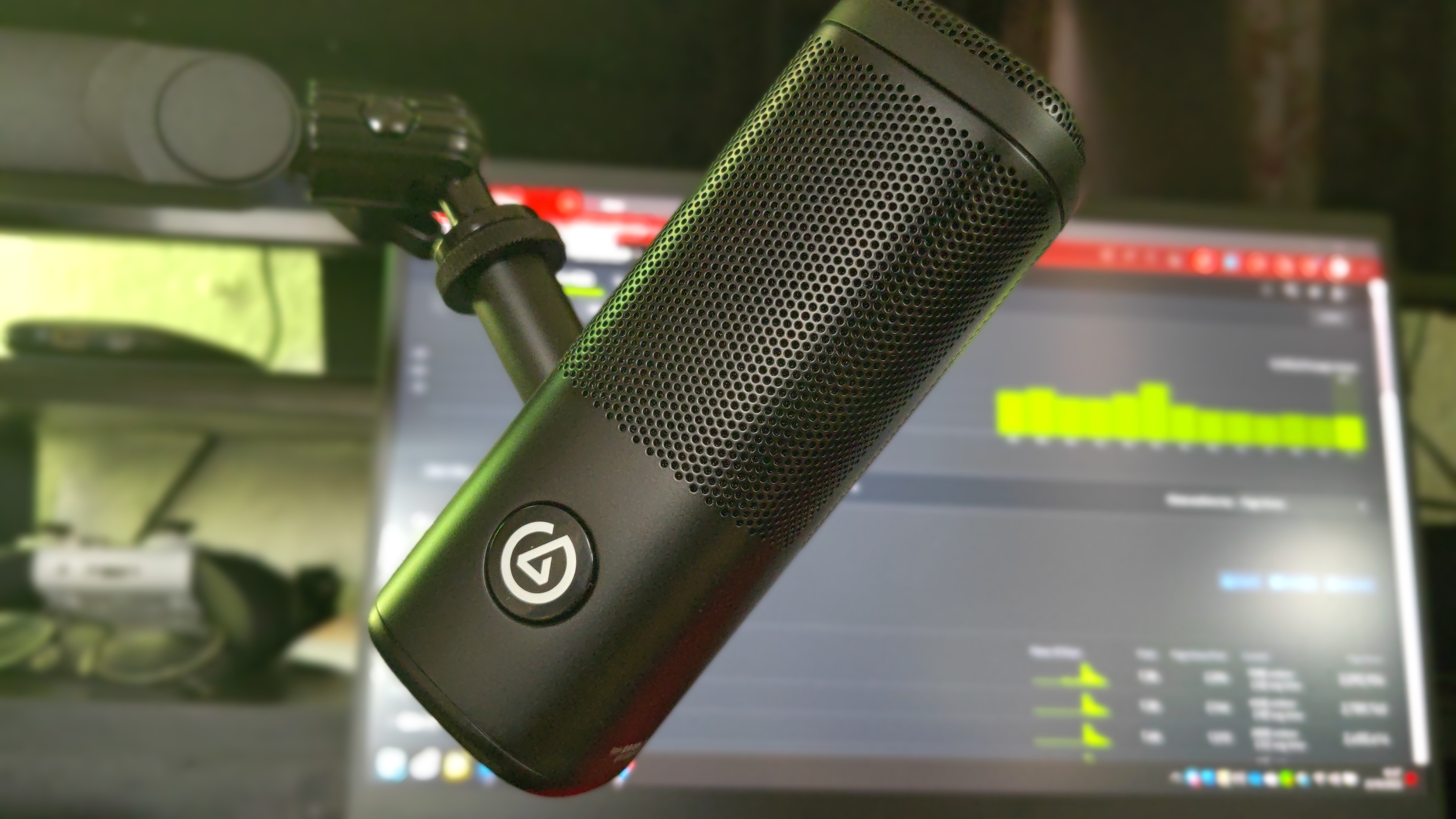
If the Ethos feels excessive, the Elgato Wave DX with Wave XLR offers one of the most affordable avenues for XLR microphones. Without any processing, it does pick up a disappointing amount of noise. You'll need to use a set of post-processing plugins to shape your recordings into something more professional.
As with any XLR option, it needs a mixer for connection like the Wave XLR and an XLR cable. If you pick up the whole Elgato Wave package with an official microphone arm, you'll be spending around $400.
Matching the price of an Ethos with no extras is tempting for Elgato customers, but I used the cheapest microphone arm I could get my hands on and only prioritized a high-quality XLR cable. Consider picking up the Elgato Wave XLR mixer for $170 for a simple USB-C connection to your PC.
Earthworks Audio Ethos: Should you buy?
You should buy this if ...
- You prefer a clean, simplistic design and an easy setup.
- You want a versatile, high-end XLR microphone.
- You plan to record more than just vocals.
You shouldn't buy this if ...
- You want a basic streaming microphone.
- You prefer all necessary accessories to be included.
- You don't have desk space for XLR mixing equipment.
Earthworks Audio has taken the design and manufacturing process of the Ethos microphone extremely seriously, resulting in a sturdy and elegant construction loaded with high-end components. The design is straightforward, perhaps even leaning toward professional studios than desks of energetic gamers, but it's undoubtedly one of the best microphones for streaming if you want XLR.
Its versatility goes far beyond just recording vocals and might be a little excessive for your average content creator. Still, if you pair the Ethos with accessories of equal quality, it should last you for many years. A $399 microphone is a hard sell for newcomers to the XLR scene, but Earthworks Audio is offering outrageous value for money. Skip the expensive matte black alternative and grab this stainless-steel beauty.

Ben is a Senior Editor at Windows Central, covering everything related to technology hardware and software. He regularly goes hands-on with the latest Windows laptops, components inside custom gaming desktops, and any accessory compatible with PC and Xbox. His lifelong obsession with dismantling gadgets to see how they work led him to pursue a career in tech-centric journalism after a decade of experience in electronics retail and tech support.
